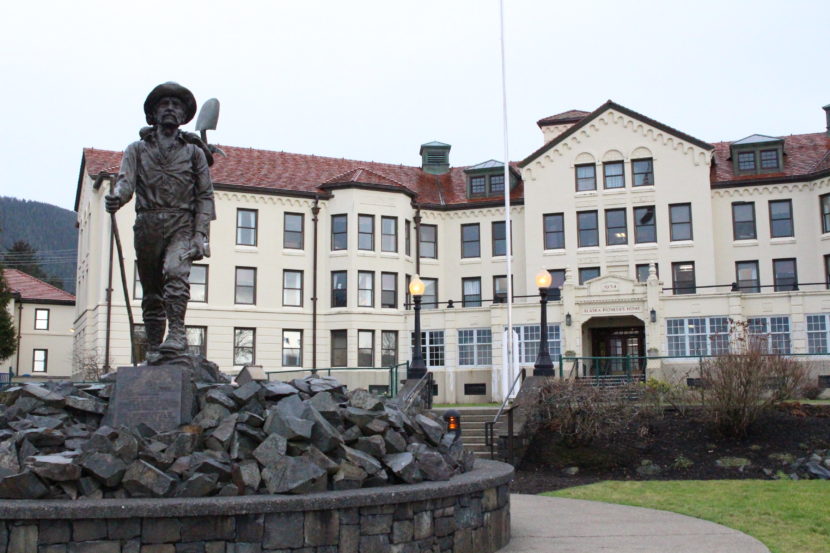
When the Alaska Legislature convenes later this month, it will consider a budget that makes no further cuts to Alaska’s Pioneer Homes. Final decisions are months away.
But Gov. Bill Walker’s spending plan would help level the senior-care program’s funding after several years of reductions.
Juneau Sen. Dennis Egan’s heard a lot from his constituents about cutbacks at Alaska Pioneer Homes. And he understands their importance, from personal experience.
“My mother was a tenant for over five years. And I know the good that Pioneer Homes do,” Egan said.
Egan’s mom, former Alaska First Lady Neva Egan, was a lot like many in the six homes, in Southeast and the Railbelt.
“She had dementia and she was always very confused. And the folks here at the Juneau Pioneer Home facility were just incredible folks,” Egan said.
Egan, a Democrat representing about half of Southeast, is happy to see the governor plans no more cuts.
Walker’s operating plan calls for spending about $51 million in state money during the fiscal year beginning in July. That’s a slight increase over the current budget year, which itself was a small boost from the previous one.
Pioneer Homes Division Director Vickie Wilson said they lost capacity because of budget reductions.
“No program wanted to be cut, but we all felt that we were doing our share,” Wilson said. “But it did result in having a lower number of beds available that we could provide care in.”
One way to look at it is the total number of residents. That dropped close to 10 percent over most of the past three years, ending in the fall.
Another way is how quickly beds are filled when residents die or move.
In the 2015 fiscal year, about 97 percent had new occupants. But the following year, it was only about 83 percent.
Wilson said that’s because Pioneer Homes spend about 80 percent of their budget on staff who tend to residents’ medical needs and provide them with meals and other essentials.
“Many positions, we had no funding for. So we’ve lost many of our staff through the cuts that we had,” Wilson said.
Staff losses, many through attrition, have slowed admissions at the homes, in Ketchikan, Sitka, Juneau, Anchorage, Palmer and Fairbanks.
The active waiting list, for those ready to enter any of the facilities, is more than 650. An inactive, placeholder list is eight times as long. Wilson estimated about three-quarters of those on the active list need the highest level of care, which requires more staff.
Wilson said open positions are being filled, just not as fast as they used to.
“They are being held longer. But that could be a month to six weeks,” Wilson said. “Not turning around and hiring tomorrow. And it allows us to be able to manage.”
There’s no guarantee the governor’s Pioneer Homes budget will remain untouched as it works its way through the Legislature.
Sen. Egan said he’ll be among those pushing for the funding.
“I hope the heck it does. I hope it makes it,” Egan said.
And has Egan signed up and added his name to the waiting list?
“Oh, absolutely. I signed up on my 65th birthday,” Egan said, admitting his wife, Linda, took care of the paperwork. He added he hopes he doesn’t need go to into a home.
Ed Schoenfeld is Regional News Director for CoastAlaska, a consortium of public radio stations in Ketchikan, Juneau, Sitka, Petersburg and Wrangell.
He primarily covers Southeast Alaska regional topics, including the state ferry system, transboundary mining, the Tongass National Forest and Native corporations and issues.
He has also worked as a manager, editor and reporter for the Juneau Empire newspaper and Juneau public radio station KTOO. He’s also reported for commercial station KINY in Juneau and public stations KPFA in Berkley, WYSO in Yellow Springs, Ohio, and WUHY in Philadelphia. He’s lived in Alaska since 1979 and is a contributor to Alaska Public Radio Network newscasts, the Northwest (Public Radio) News Network and National Native News. He is a board member of the Alaska Press Club. Originally from Cleveland, Ohio, he lives in Douglas.




